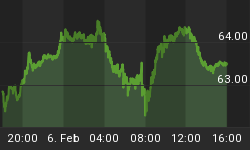Some of the money managers who made names (and billions of dollars) for themselves in the past decade are suddenly failing:
Hedge Funds Brace for Redemptions
(Bloomberg) - When BlueCrest Capital Management told investors Tuesday it would no longer oversee money for outsiders, one thing founder Michael Platt didn't mention was that clients had already pulled billions of dollars this year.
Platt, who cited client demands and pressure on fees as a reason for his decision, isn't alone in feeling the heat from investors. Firms including Och-Ziff Capital Management Group LLC and Mason Capital Management have seen cash flee this year, and others such as Fortress Investment Group LLC's macro funds business shut down after redemptions and losses.
Hedge fund investors are losing patience even with marquee firms as many of them struggle this year, especially those that offer macro strategies or stock funds heavily weighted to rising shares. Some managers have lost money for two years running, while others such as David Einhorn's Greenlight Capital are suffering declines that rival their worst year. After the weakest third-quarter inflows in six years, the industry could see outflows in the fourth quarter, said investors and bankers who watch the ebb and flow of hedge fund assets.
"The fourth quarter will be flat and possibly negative," said Peter Laurelli, head of research at Evestment Alliance, which tracks hedge fund investments.
Among the most prominent losers in the second half is Bill Ackman, whose Pershing Square Capital Management is down more than 17 percent in 2015 through November. The firm has been hurt by its investment in Valeant Pharmaceuticals International Inc., whose shares have slumped 31 percent this year amid scrutiny over drug prices.
Einhorn's Greenlight Capital has declined 21 percent this year, as positions such as SunEdison Inc., Consol Energy Inc. and Micron Technology Inc soured. Einhorn's worst annual loss was in 2008, when his fund fell 23 percent.
Mason's Slump
Others firms have been losing money for more than a year. Mason Capital, an event-driven fund based in New York, was down about 20 percent from the start of 2014 through this year's third quarter, according to investors. Assets fell to about $5.6 billion from about $9 billion at the end of last year.
Fortress Investment Group LLC said in October it was closing its $2.3 billion macro business run by Michael Novogratz after posting losses for almost two years. Earlier that month, Bain Capital decided to shutter its Absolute Return Capital fund after more than three years of declines.
At BlueCrest, assets have shrunk by more than 40 percent this year to $7.9 billion, mostly from withdrawals after years of lackluster returns in what was once its biggest fund. New Jersey's public pension plan decided to pull $284 million from one international fund as of June 30, citing "disappointing" returns just over a year after adding to its investment.
Why are the worlds' most successful investors having so much trouble lately? The short answer is that the markets they used to understand have been replaced by something very different. Consider:
Starting in the late 1990s, every crisis with even a hint of systemic import -- which would have provided information for market participants about what not to do -- has been short-circuited with easy money, lower interest rates and directed bail-outs. Where a properly-functioning financial market would have signaled banks and leveraged speculators to ease up on the risk taking, the "Greenspan put" said "do whatever you want, we'll fix it if you fail." The result was a massive increase in leverage across the board, to the point where virtually every government and many corporations and individuals now carry unprecedented amounts of debt.
While the world was leveraging itself to the hilt, governments and big banks were manipulating virtually every major market for, respectively, political gain and trading profits. The list of indexes and instruments that are or have been messed with include LIBOR, long and short-term sovereign interest rates, blue chip equities, gold, developed world currencies, emerging market currencies, mortgage backed bonds and various kinds of swap contracts. In each of these (and many other) sectors, fundamentals no longer matter, leaving investors with no tea leaves worth reading.
Last but not least, financial crises lead to geopolitical turmoil. With the Middle East engulfed in end-to-end war, the US butting heads with Russia and China in, respectively, Syria and the South China Sea, and Europe being swamped by millions of Middle Eastern refugees and the rise of anti-euro political parties, market price signals, to the extent they exist at all, are being drowned out by geopolitical noise, which is another way of saying that political risk now trumps economic/financial fundamentals.
In this new, post-market world, money managers can't separate signal from noise and end up on the wrong end of wild swings in commodities, currencies and interest rates. And now their clients are figuring this out.















